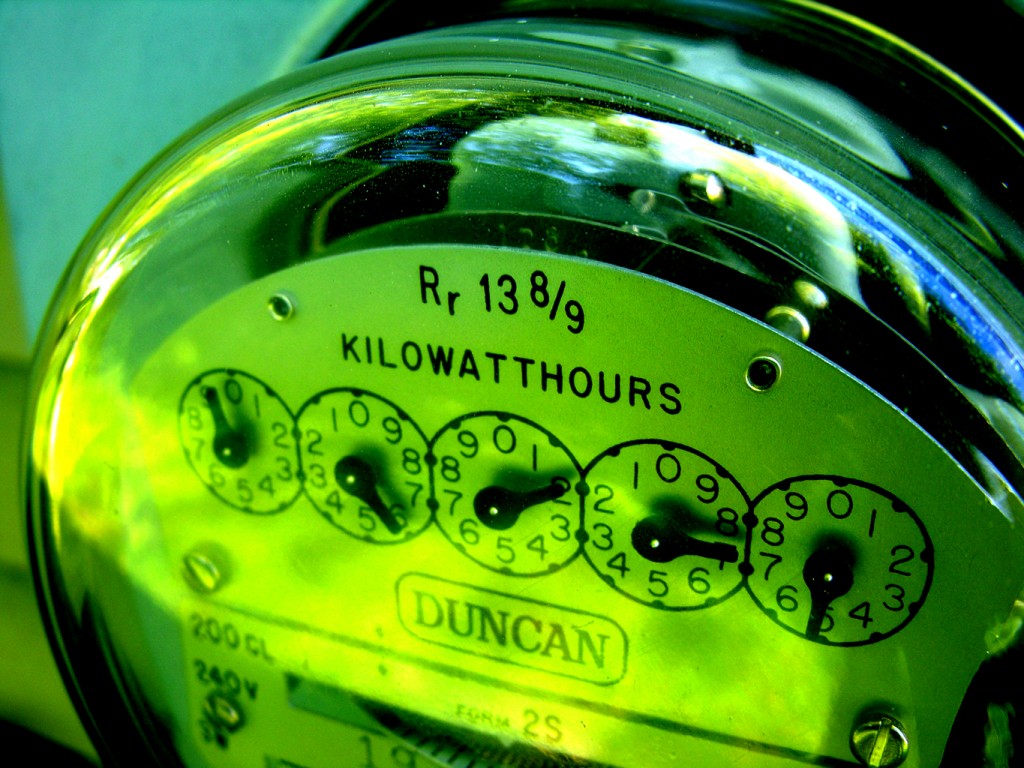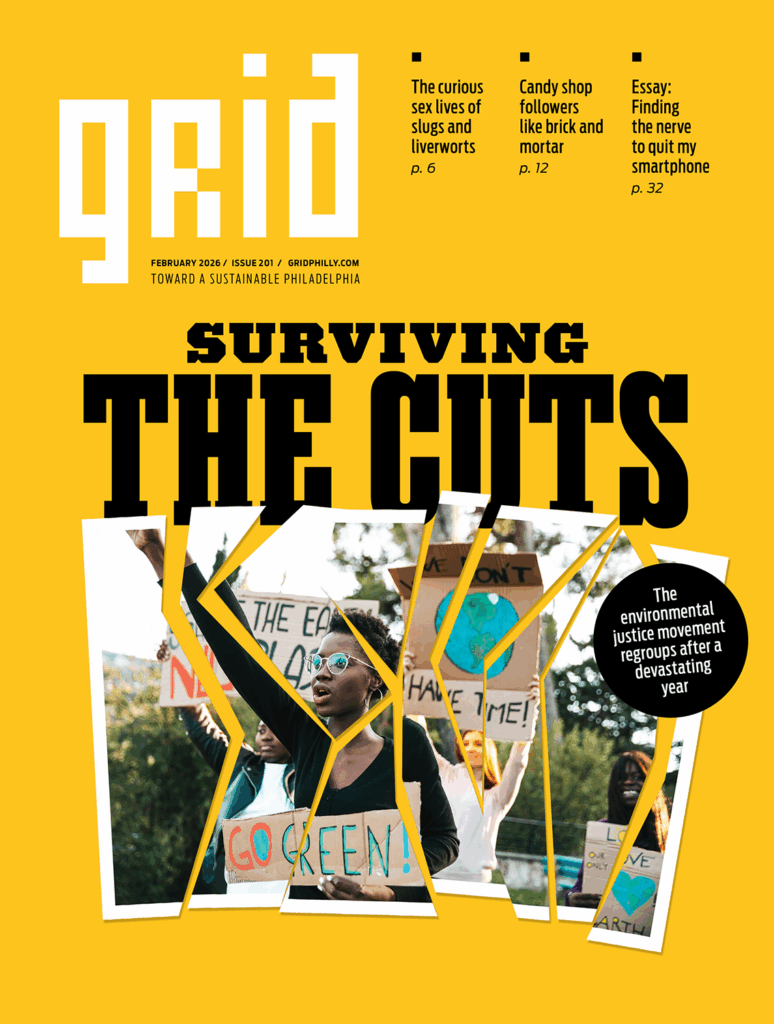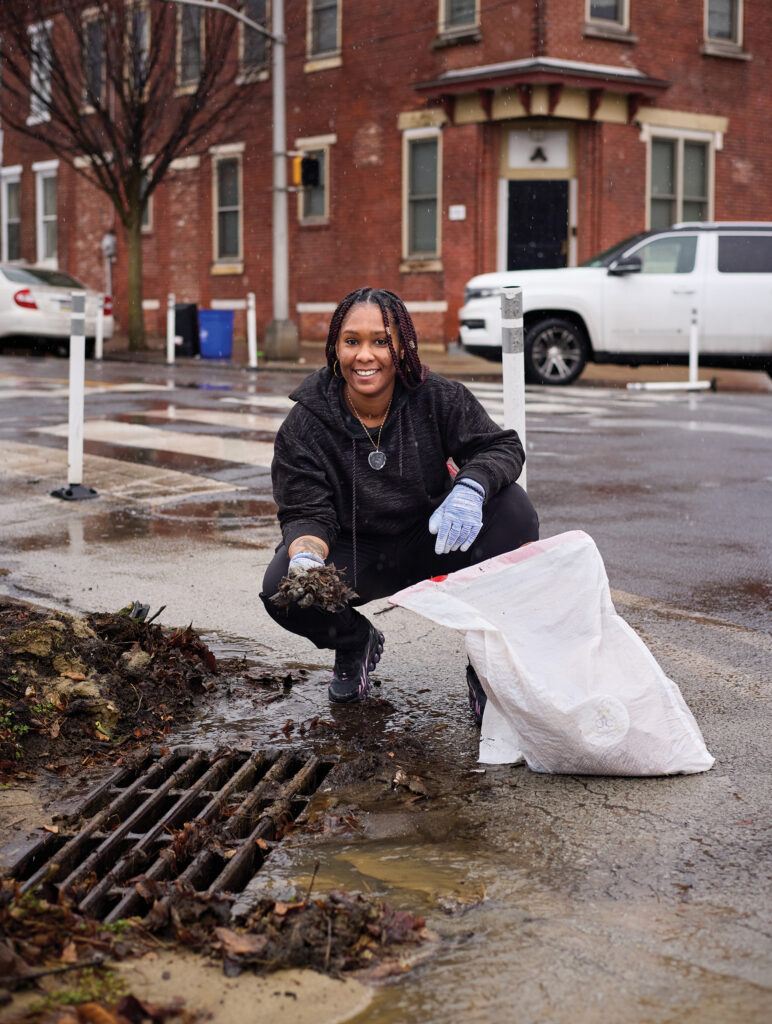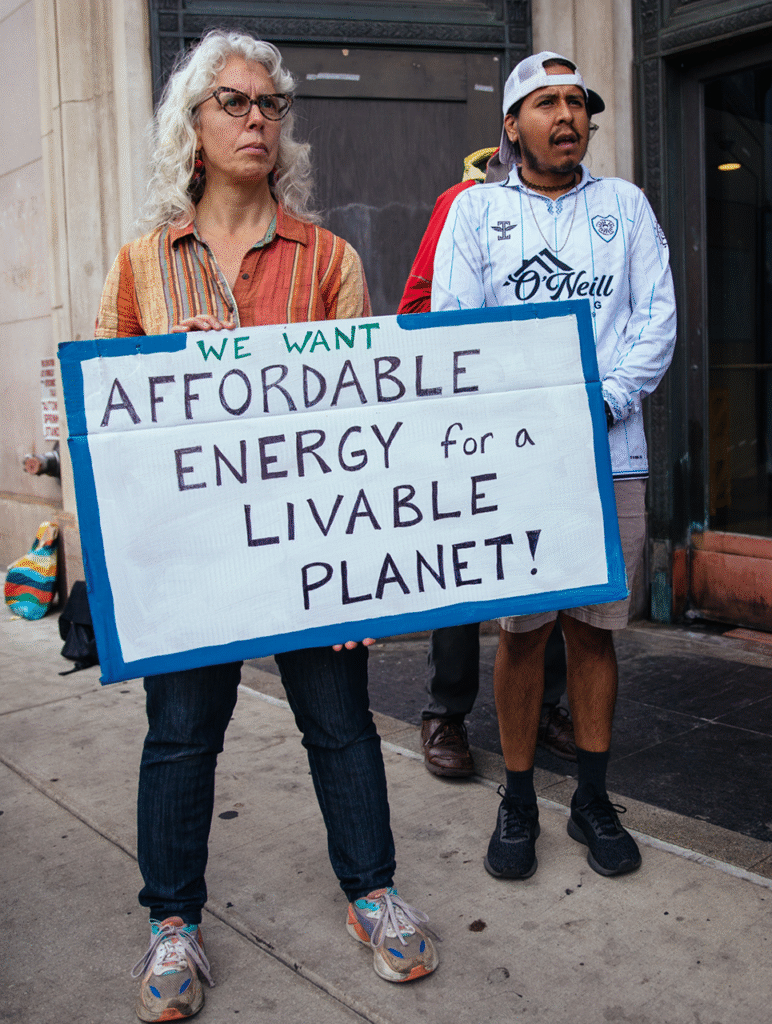portrait by Mark Likosky
“Energy efficiency is such a win-win. It truly is the cleanest, cheapest, safest and fastest energy resource, and it creates the most local jobs. In a city like Philadelphia, it’s also transformative. Harnessing our energy efficiency resource will transform our energy economy and enable our wonderful old buildings to last another hundred years.” — LR
Slow and steady wins the race. Energy efficiency is like the tortoise of the old fable. It’s the first energy, the first step toward responsibly balancing our need for comfort and commerce with our available resources. It’s attic insulation and caulk, a low thermostat and a thick sweater, the less sexy counterpart to a field full of sleek new windmills made of steel.
While we’re going to need both to get to the finish line of a sustainable city and planet, we’re lucky that Liz Robinson has been helping us to steadfastly march toward our goals. Since helping to found the Energy Coordinating Agency (ECA) in 1985, Robinson has helped the ECA establish a citywide network of 14 Neighborhood Energy Centers that act as one-stop shops for the delivery of low-income energy services. They serve 15,000 low-income households every year with financial assistance, education, and energy and water upgrades. ECA has also educated tens of thousands of people through do-it-yourself workshops locally and statewide, and was a founding partner the Keystone Energy Efficiency Alliance, a statewide trade association of energy efficiency and demand response companies that Robinson also leads.
Robinson’s work has also been centered on creating local jobs, and ECA has trained over 3,600 Philadelphians to become energy efficiency experts. She counts as one of her proudest accomplishments founding the Knight Training Center, which prepares a diverse workforce of men and women for careers in energy efficiency, stormwater management and environmental remediation.
While she’s Philadelphia’s grande dame of energy efficiency, she’s not averse to seeing more of those fields of windmills. “I’d like to see solar and other renewable energy double every year for the next several years,” Robinson says. “We need to take clean energy to scale as quickly as possible.”
The Energy Coordinating Agency
Over the last 30 years, the ECA says it has worked to “build the infrastructure to support excellence in energy efficiency and low-income energy service delivery,” and has also been a job creator for the region.
15K – Number of low-income households served each year by ECA’s Neighborhood Energy Centers, including bill payment assistance, budget counseling and energy conservation
$250 million – Amount that tens of thousands of homes have saved since ECA’s inception
130K – Total number of ECA’s residential energy efficiency improvements, heating system repairs and upgrades, and water conservation interventions
To find out how ECA can help save you money and make your home more energy efficient, visit: www.ecasavesnergy.org














